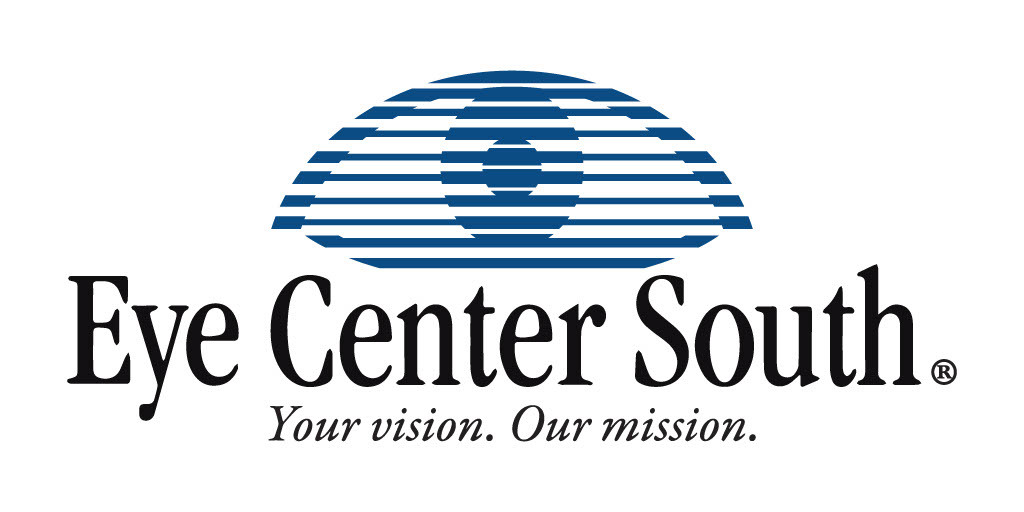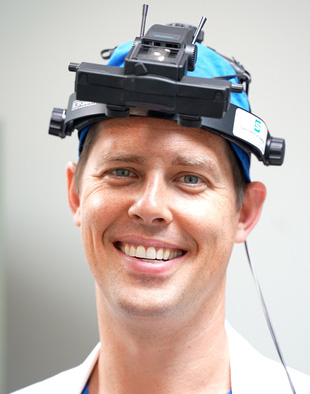When it comes to eye care, understanding the difference between an optometrist and an ophthalmologist can help you get the right care for your needs. At Eye Center South, we’re proud to offer the convenience of both optometry and ophthalmology services within our practice, thanks to our Vision Center South optometry division. Our combined approach means you get the right care at every stage of your eye health journey.
What’s the Difference Between an Optometrist and an Ophthalmologist?

Although both professions focus on eye health, their training and scope of practice differ significantly.
Optometrist (op-TOM-uh-trist):
Optometrists hold a Doctor of Optometry (OD) degree, which requires four years of optometry school after completing an undergraduate degree. Their training focuses on primary vision care. They are your first point of contact for routine eye exams, vision correction, and management of some common eye conditions.
Optometrists:
- Perform comprehensive eye exams to check your vision and overall eye health.
- Prescribe glasses and contact lenses to correct refractive errors like nearsightedness or farsightedness.
- Diagnose and manage certain eye conditions like dry eye, conjunctivitis, or glaucoma (referring to ophthalmologists as needed)
- Provide pre-and post-operative care for eye surgeries but do not perform surgical procedures themselves.
If your needs go beyond routine care, your optometrist can refer you to an ophthalmologist for specialized treatment.
Ophthalmologist (off-thuhl-MOL-uh-jist):
Ophthalmologists are medical doctors (MDs) who specialize in the medical and surgical care of the eyes. Their training includes four years of medical school, a residency in ophthalmology, and often additional fellowship training.
Ophthalmologists:
- Diagnose and treat complex eye diseases, such as cataracts, macular degeneration, diabetic retinopathy, and retinal detachments.
- Perform advanced procedures, including cataract surgery, LASIK, and retinal surgeries.
- Offer medical treatments for eye-related conditions caused by systemic diseases like diabetes or autoimmune disorders.
How Do You Know Which Specialist to See?
Deciding who to visit often depends on the type of care you need:
- Routine Eye Care and Vision Correction: If you’re due for an annual eye exam or need updated glasses or contacts, an optometrist is your go-to professional. They are also great for diagnosing and managing common eye conditions like dry eye or early glaucoma.
- Complex Eye Issues or Surgery: If you experience sudden vision changes, eye pain, or symptoms of a serious condition like cataracts or retinal problems, an ophthalmologist is the specialist you need.
- Not Sure? Start with an Optometrist: If you don’t know where to begin, your optometrist can guide you. They’ll diagnose your issue and, if necessary, refer you to an ophthalmologist for advanced care.
Comprehensive Care in One Place
At Eye Center South and Vision Center South, we offer the convenience of both optometrists and ophthalmologists working closely together to meet your eye care needs. If your Vision Center South optometrist identifies a condition that requires surgical care, you can easily transition to one of our Eye Center South ophthalmologists without missing a beat.
This collaboration benefits you by:
- Reducing delays in care
- Providing consistent communication between your providers
- Giving you access to trusted specialists across both practices
Whether you’re in need of a routine eye exam or advanced surgical treatment, we have the right specialist for you. Ready to take the next step? Schedule an appointment with our Eye Center South ophthalmologists or book a visit with our Vision Center South optometrists today. We look forward to helping you achieve your best vision!






